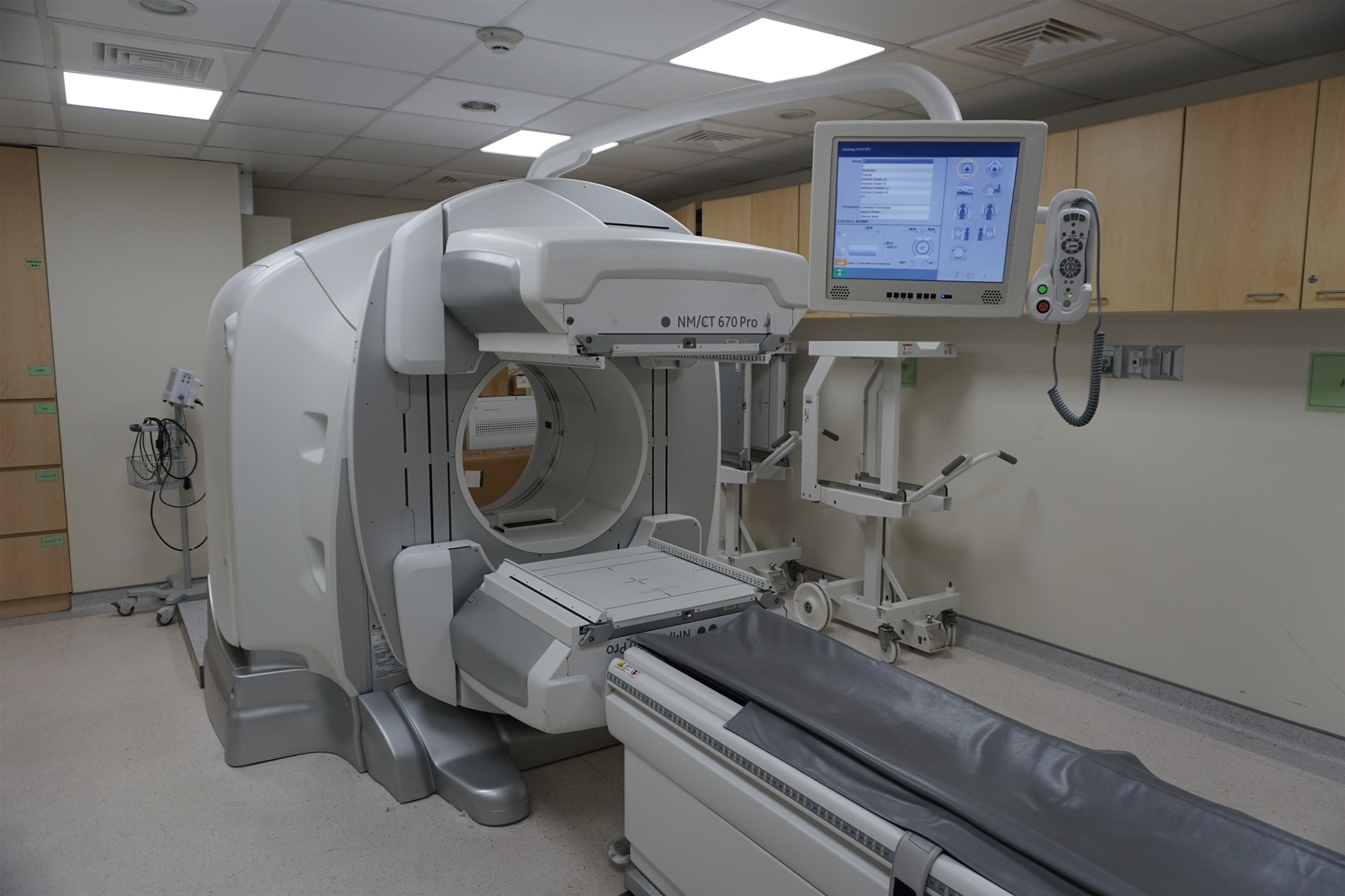Based on a clinical evaluation, your doctor may recommend a nuclear medicine myocardial perfusion scan to confirm a suspected coronary artery disease. This study may help diagnose if narrowed coronary artery is the triggering factor of heart oxygen deficiency which incurs either angina or infarction of heart muscle. We hope this introductory brochure will help you further understand this study.
Procedure for the study
- Avoid using aminophylline and similar bronchodilator medicine 24 hours before the study. Also, avoid caffeine intake.
- During the study, you will be asked to lie on the bed for electrocardiogram and our doctors will inject a vasodilator, dipyridamole, into your vein. Three minutes later, they then help you inject the radiotracer.
- Ten minutes after tracer injection, it will take about 30 minutes for the scan.
- You will be asked for another 30 minutes of scan about 3 - 4 hours later.
Things to keep in mind
- Notify our medical staff if you suffer from the following conditions because it is inappropriate for your condition to proceed to the procedure. Conditions include pregnancy, bronchospasm ( such as, asthma or chronic obstructive lung disease ), acute infarction of the heart muscle, allergy to dipyridamole or aminophylline, severe irregular heart rhythm, unstable angina, congestive heart failure, hypotension ( systolic pressure under 80 mmHg ), and other heart or lung diseases.
- Besides the aforementioned condition, such a myocardial perfusion scan is relatively safe; however, 30 % patients could experience side effects like headache, dizziness, flushing, chest discomfort, chest pain, shortness of breath, irregular heart rhythm, and hypotension. These conditions can be resolved by injecting another reliever medicine to alleviate such discomfort. Severe side effects are rare except for a coincidental exacerbation of the pre-exited heart disease. Remain still during imaging to help improve the quality of the image.


